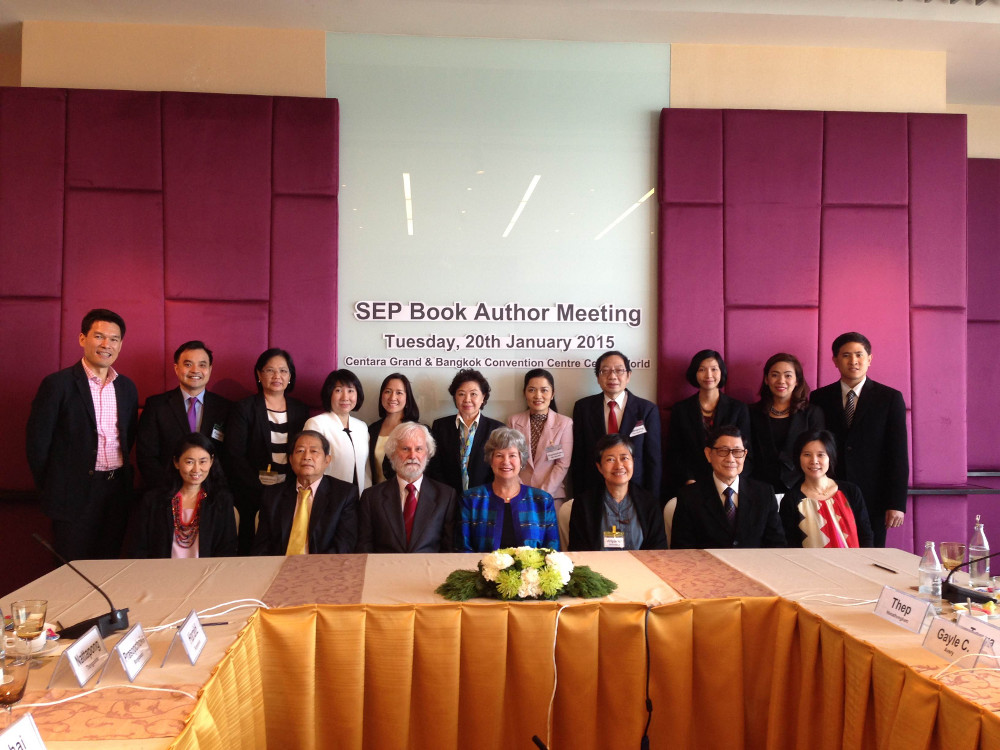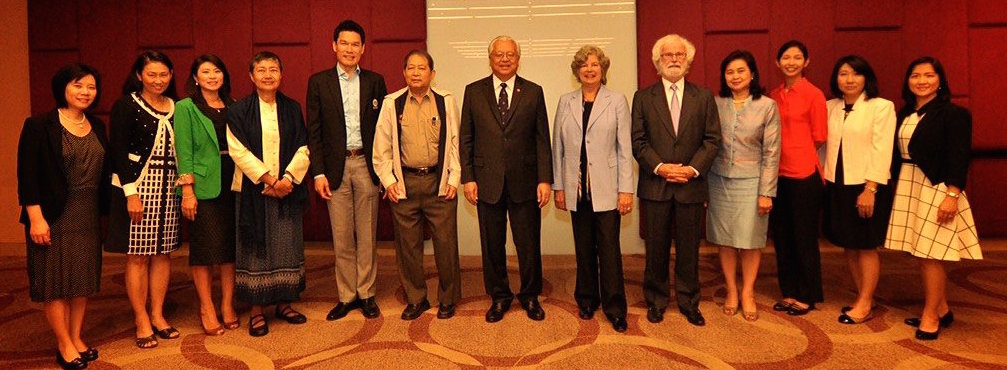All through 2015, ISL worked on a book about the Sufficiency Economy Philosophy (SEP), a philosophy which has been implemented across many sectors of Thai society. The SEP was developed by King Bhumibol Adulyadej and served as a way of leading his country out of the 1997 Asian crisis.
Since then SEP thinking has been adopted in agriculture, business, corrections, community development, economic and environmental management, healthcare, and schools.
In the book, 20 Thai experts write chapters about how sufficiency thinking leads to effective outcomes for individuals, families, communities and enterprises of diverse sizes. The Thai Sustainable Development, through its Foundation (TSDF), generously supported the project.
What is the sufficiency philosophy?
Sufficiency thinking emphasises the importance of combining virtues or virtuous intentions with knowledge to enable those intending to do the right thing to make sensible or “wise” decisions. Wise decisions reflect a mindset governed by moderation, reasonableness and prudence. Obviously, internal and external influences – some predictable and others not foreseeable – will always affect which decisions are made and how they are put into effect.
Sufficiency thinking is intended as a virtues-and science-based decision-making framework or foundation that can be applied to all spheres of life. It is underscored by sets of practical work principles that suggest appropriate ways of actually behaving. Sufficiency thinking further foresees measurable economic, societal, environmental and cultural outputs that are kept in balance. However, the ultimate outcomes envisaged are overall wellbeing and sustainability, which include being self-reliant, immune against hardships, resilient should hardships occur, adaptable and, above all, happy.
Sufficiency thinking and its application to a wide range of domains are special themes at ISL’s 2016 conference in Bangkok.

Book authors at a meeting in Bangkok.

Authors celebrate the conclusion of the book project with Dr Chirayu Isarangkun Na-Ayuthaya, Chairman of the Thailand Sustainable Development Foundation who sponsored the project.
